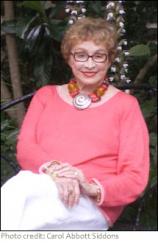Excerpt
Excerpt
Fault Lines

On the day of my husband's annual fund-raising gala, I was down by the river liberating rats.
There were two of them on this day, massive, stolid, blunt-snouted beasts who bore no more resemblance to common house mice than beavers, or the nutria from the bayous of my childhood. Rattus rattus they were, or, more familiarly, European black rats. I looked them up in Webster's Unabridged when Pom first designated me their official executioner. I figured that if you're going to drown something, the least you can do is know its proper name. That was a fatal mistake. Name something, the old folk saying goes, and you have made it your own. Rattus rattus became mine the instant I closed Webster's, and after that I simply took the victims caught in Pom's traps down to the river and, instead of drowning them, let them go. Who, after all, would know? Only the dogs went with me, and, being bird dogs, they were uninterested in anything without wings. The leaden-footed, trundling rats were as far from the winged denizens of God's bestiary as it was possible to be. My hideous charges waddled to freedom unmolested.
There were two and three of them a day in those first steaming days of June. Pom was delighted with the humane traps. The poison put down by the exterminating company had worked even better, but the rats had all died in the walls and for almost a month before we tried the traps the house smelled like a charnel house, sick-sweet and pestilential. We'd had to cancel several meetings and a dinner party. The exterminators had promised that the rats would all go outside to die, but none of them had, and Pom was furious with both man and beast.
"Why the hell aren't they going outside?" he said over and over.
"Would you, if you could die in a nice warm pile of insulation?" I said. "Why on earth did either of us believe they'd go outside? Why would they? They probably start to feel the pain almost immediately. They're not going to run a 10K with arsenic in their guts."
I hated the poisoning. I hated the thought of the writhing and the squeaking and scrabbling and dying. I never actually heard it, but somehow that was even worse. My mind fashioned grand guignol dances of death nightly behind my Sheetrock. I took to leaving the radio on softly all night, in fear that I would hear. The only result of that was that I would come awake at dawn with my heart jolting when the morning deejay started his drive-time assault and would lie there blearily for long seconds, wondering if it had been the phone I heard, or Pom's beeper, or Glynn calling, or some new banshee alarm from Mommee upstairs. Only when I had listened for a couple of minutes did it sink in that I was hearing Fred the Undead blasting Atlanta out of bed and onto the road.
As early as I wakened on those mornings, Pom was invariably up earlier and was almost always gone to the clinic by the time I padded into the kitchen in search of coffee. I would find his usual note propped up against the big white Braun coffeemaker: "Merritt: 3 more, 2 in lv. rm. and 1 in libr. Call A. about Fri, I think there's something. Blue blazer in cleaners? Worm capsules, 2 @. Mommee restless last night, check and call me. Home late, big bucks in town. See you A.M. if not P.M. XXX, P."
Translated, this meant there were three new captives in the rat traps, and I was to dispatch them in the river. Then I was to call his secretary, Amy Crittenden, who loved him with the fierce, chaste passion of the middle-aged office wife, and see what our plans were for Friday evening; Pom frequently made social arrangements for us and forgot to tell me, so Amy became a willing go-between. I liked and valued her and seldom chafed at her fussy peremptoriness, though I was not above a moment's satisfaction when I was able to say, "Oh, Amy, he's forgotten we have plans for Friday. You really need to check with me first." Then I was to locate his blue blazer and fetch it from the cleaners if it was there, which meant that the Friday mystery evening was casual and funky, like a rib dinner down in the Southwest part of the city, to show the flag in the affluent black community there. Much of Pom's clinic's work was done in and for the black communities south of downtown, and he endured the socializing as coin that paid for the free clinical work that was his passion. Pom was as impatient with the River Club as he was with the rib dinner, but knew better than anyone the necessity for both. In the twenty years that the network of Fowler clinics had been in operation, he had become a consummate fund-raiser. He was an eloquent speaker, a tireless listener to fragile egos, and without vanity himself, a rare thing indeed in a physician. The day his board of directors and auxiliary discovered this was the day that he began to move, imperceptibly at first, out of the office and onto the hustings. Because he was unwilling to surrender even a moment of what he considered his real work, diagnosing and healing the poor, he solved the conflict by simply getting up earlier and earlier to get to the clinic and coming home later and later. Now, two decades later, I virtually never saw him by morning light and often not by lamplight, either. Of course he didn't have time to get his blue blazer out of the cleaners; of course I would do it for him. It was in our contract, his and ours. He would care for the poor and the sick; I would care for him and our family. If this grew tedious at times, I had only to remind myself that Pom and I were in a partnership beyond moral reproach. Caretaking, any sort of caretaking, was my hot button. The smallest allegation of moral slipshoddiness was my Achilles' heel.
Next, the note bade me give the two bird dogs who lived in the run down by the river their worm capsules, two each. Samson and Delilah were liver-spotted setters, rangy and lean and sleek, seeming always to vibrate with nerves and energy and readiness. Pom had grown up bird hunting with his father, the Judge, on a vast South Georgia timber plantation, and he thought to take the sport up again when we bought the house on the river five years before, so he kept a brace of hounds in the river run at all times. But he had yet to get back out into the autumn fields with them, even though he belonged to an exclusive hunting club over in South Carolina, on the Big Pee Dee River. He did not spend much time with the dogs, and did not want me to make pets of them. It spoiled them for hunting, he said, and it wasn't as if they were neglected or abused. Their quarters were weatherproof and sumptuous, their runs enormous, and he ran them for a couple of hours on weekends, or had me do it, if he couldn't. Besides, they were littermates, brother and sister, and they had each other for company. I will take them the pills in late afternoon when I decant the rats, I would think. Then I can spend some time with them and no one will be the wiser.
It had not yet struck me, at the beginning of that summer, how much of my time was spent doing things about which no one was the wiser.
Mommee restless: Nothing ambiguous about that. Glynnis Parsons Fowler spent her entire married life in her big house on the edge of the great plantation and ruled her husband, sons, and household help with an iron hand in the lace mitt of a perennial wiregrass debutante. As far as I know she was never called Glynnis in her life; her adoring Papa called her Punkin, her sons called her Mommee, and her husband Little Bit, but despite the cloying nicknames and her diminutive stature, she was a formidable presence always. Even now, ten years widowed and five years into Alzheimer's, two of them spent under our roof, she ruled, only now with mania instead of will and wiles. A restless night meant muttering and shuffling around her room at all hours, which Pom, no matter how weary, never failed to hear and I, no matter how well rested, seldom did. The note meant that he had had to get up and calm her again, and I whose task this was, had not . . . again. I knew that Pom had no thought of shaming me about this. The shame I felt was born entirely within me. I should have heard her. I will spend the morning with her, I would think, and Ina can go for the groceries and dry cleaning.
Finally, the note told me that someone with the potential for major financial support for the clinic was in town, and Pom was wining and dining him, and might be taking him somewhere afterwards for a nightcap. Many of the clinic's benefactors were from the smaller cities across the South, and liked to see what they thought of as the bright lights of the big city when they came to Atlanta. Not infrequently, that meant one of the glossier nude dancing clubs over on Cheshire Bridge Road. The first time Pom had come in very late from one of those evenings I whooped with helpless laughter.
"Oh, God, I can just see you with huge silicone boobs on each side of your face, hanging over your ears," I choked. "Even better, I can see you with huge silicone boobs over your ears and half an inch of five o'clock shadow, glaring out from the front page of the Atlanta Constitution. 'Prominent physician caught in raid on unlicensed nude dancing club.' What would Amy say?"
Fault Lines
- Mass Market Paperback: 368 pages
- Publisher: HarperTorch
- ISBN-10: 0061093343
- ISBN-13: 9780061093340








